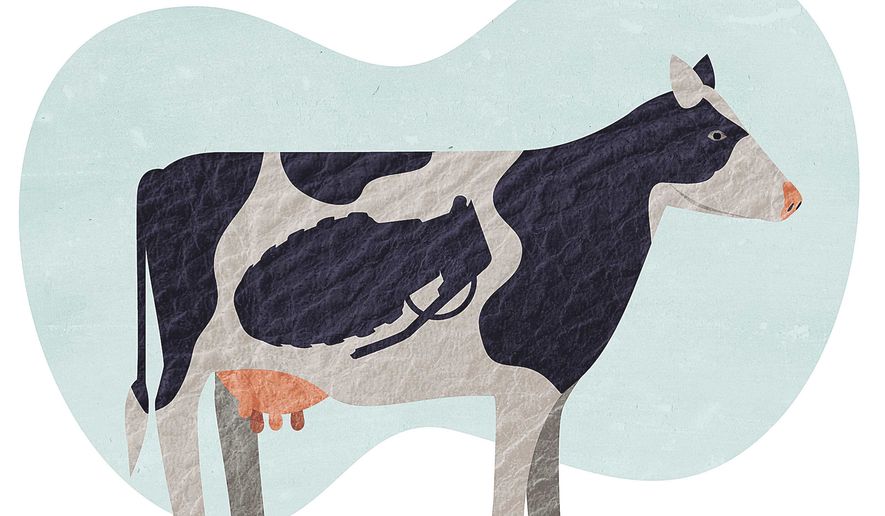OPINION:
President Obama caused a stir across the pond last month when he waded into the debate over whether the United Kingdom should quit the European Union. Mr. Obama urged the country to remain within its supranational government, pointing to the economic benefits and suggesting that an exit would threaten trade ties with the United States.
A lot of British voters think he should have kept mum. I see their point. I don’t want the queen of England to lecture Americans on what to do about the Trans-Pacific Partnership.
Yet I sympathize with Mr. Obama’s impulse. The president probably believes that the United States will have more influence in Europe if the United Kingdom remains in the EU — and that this will lead to a more stable continent, less susceptible to Russian mischief and other threats.
There’s already enough instability in the world, from the civil war in Syria and its refugee crisis to the ongoing menace of the Islamic State and China’s adventurism in the South China Sea.
Amid this turmoil, a new report from the Chicago Council on Global Affairs points to one of the most important but least appreciated ingredients to international tranquility: food security.
“Feeding the world and teaching the world to feed itself is not just a humanitarian endeavor,” said the report. “It is vital to U.S. national security.”
In other words, a well-fed world is a peaceful world.
The Chicago council’s study links food-price data from the Food and Agricultural Organization with protest and riot data from the World Bank, revealing the close connection between economic volatility and national mayhem. Rising food prices, for example, helped give birth to the so-called Arab Spring in 2010 and 2011 — a wave of protests for more democracy in North Africa and the Middle East. They started in hope but turned into the region’s latest disappointment.
The bottom line is that when food prices spike, things go bad — and not just for the people in the immediate line of fire. In 2007, food-price protests in Haiti led to the fall of a government. In the aftermath, Coast Guard interdictions of Haitians rose by more than third, putting pressure on U.S. national security.
Food is the ultimate weapon. If you’re hungry, you’ll do desperate things. If your children are hungry, however, you’ll do anything — often with guns and bombs.
We don’t know where unrest will strike next, but we can guess. “Most countries in sub-Saharan Africa are at risk of worsening food insecurity,” said a report from the National Intelligence Council last year. The Chicago council identifies a dozen trouble spots: Angola, Benin, Burkina Faso, Chad, Ethiopia, Gambia, Madagascar, Mali, Mozambique, Rwanda, Tanzania and Uganda.
The plight of these nations may seem remote from our concerns, but would the United States really ignore, say, a new Rwandan genocide? A few years ago, former President Bill Clinton said that one of his regrets as president is not having intervened in Rwanda’s 1990s catastrophe. He thinks a U.S. military presence might have saved hundreds of thousands of lives.
Maybe he’s right. But how many Americans are eager for a new foreign entanglement?
A few weeks ago, Americans marked the 50th anniversary of the war in Vietnam, where I fought as a Marine. We were dragged into that conflict. Would we want to get yanked into another, in Rwanda or anywhere, because food prices rose quickly and events spiraled out of control?
One of our best allies is trade. It guards against sharp spikes in the price of food. Because of the work of the Chicago council, we can add that trade not only brings goods and services — it also delivers peace. If food can’t flow across borders, then soldiers will.
Food shortages can cripple even the most advanced technologies. Kika de la Garza, a congressman from Texas, once described a conversation with a captain of a nuclear submarine. “How far can you go?” asked the congressman. “As far as we want,” replied the captain. “Do you have to turn back when you run out of energy?” asked the congressman. “No,” said the captain. “We have to go back when we run out of food.”
It’s like Napoleon’s old quip: “An army marches on its stomach.”
Let’s use trade to keep bellies full — and prevent armies from marching across the mountains of Rwanda (where suffering may beckon us), through the jungles of Vietnam (where I once trudged), and even across the plains of Europe (where Napoleon once conquered).
Ronald Reagan introduced us to the doctrine of “peace through strength.” Perhaps our next president will offer the policy of “peace through food.”
• Bill Horan is a farmer based in North Central Iowa and serves as a board member and chairman for the Global Farmer Network.




Please read our comment policy before commenting.